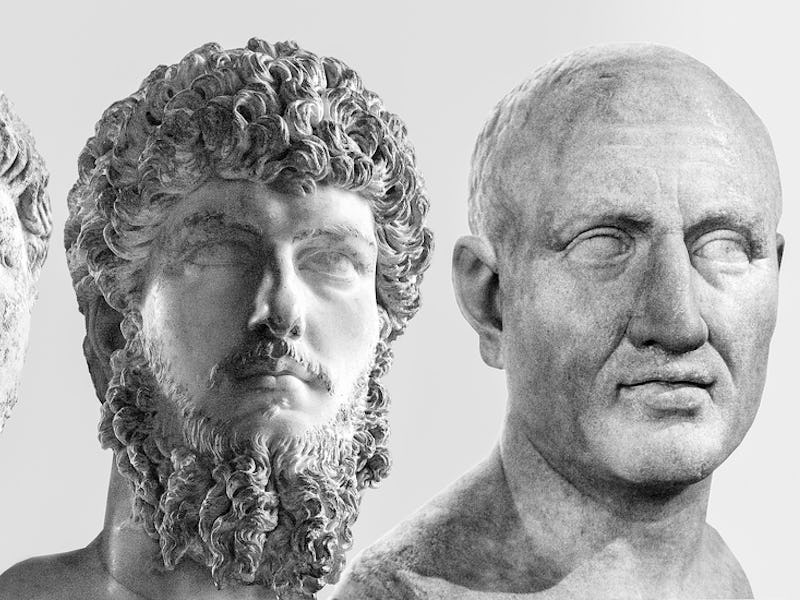Evolutionary Study Uncovers Genes That Extended How Long Humans Live
"It's absolutely a humbling fact."

If you’re a housefly, life comes at you fast: Within days of being born, you mature, hatch your babies and die having served your evolutionary purpose. But we humans tend to take as many as 100 years to undergo the same process. Now, a new study featured on the cover of Molecular Biology Evolution provides new insight into why humans are able to live as long as we do. Researchers identified a handful of genes that were so strongly conserved millions of years ago, they influence our lifespans even today.
Lead study author Arcadi Navarro, Ph.D., a research professor at Pompeu Fabra University’s Institute of Evolutionary Biology tells Inverse that much like physical traits, our lifespans evolved in response to our environment.
A family tree of primates constructed during Navarro's analysis. Notice how much of an outlier human lifespan is compared to neighboring species.
“During evolution, species adapt to their environments by lengthening or shortening their lifespans,” Navarro says. “In the case of bats, when they became able to fly they could escape predators, so it makes sense for them to invest in longer lifespans and have more offspring. But others are in the opposite position. If they’re susceptible to predation or infection they’ll shorten their lifespan so they can reproduce quicker.”
We’re Already Killing the Longevity Game
Humans are doing pretty well: We tend to live as many as fifty years longer than some of our great ape relatives, with whom we share over 99 percent of our DNA. Navarro noticed that some macaques also had far longer lifespans than their common ancestors — evidence that some type of evolutionary change had occurred.
To understand this change, his team compared roughly 19,000 genes across 17 of our primate relatives who had diverged from a recent common ancestor. They divided the primates into two groups: those that had a long lifespan and those that didn’t.
The researchers discovered that there were crucial mutations in 25 genes found only in the longer lifespan group. TBut these genes don’t confer longer life on their own, Navarro says. Instead, they control biological processes, such as blood coagulation and wound healing, that indirectly help extend life post-injury.
This species of macaque, Macaca mulatta was in the "long lifespan group" but they still have far shorter lifespans than humans do
Additionally, the team found that 20 of these genes are not polymorphic, which means that they show no variation. It seems that every person in every corner of the planet might have the same version of these 20 genes. In the context of “lifespan evolution” this suggests that these genes were big winners back in the day, Navarro says.
“The human ancestor’s ecological conditions allowed for evolutionary increase in lifespan,” Navarro says. “We can only speculate why but it can only make sense that we moved into environments, or ecological conditions or groups that cooperated among themselves to escape starvation and predation, allowing us to invest in having longer childhoods.”
Can We Genetically Engineer Our Lifespans?
It’s impossible to read Navarro’s study without wondering: Can we use these findings to make our lives even longer? In a way, we already have, Navarro says. “For the last two hundred years, we entered in conditions that are very similar to animals kept in zoos. We are well fed, and we don’t suffer infections. So we can express the maximum of a lifespan,” he says.
If we want to genetically manipulate ourselves to live even longer, our best bet may be to try to mimic nature’s selective process on these genes in the lab — or as this paper puts it create “new candidate interventions that mimic gene evolution associated with natural changes in lifespan.” But it’s a bit of a pipe dream, and nature has outdone us at every turn.
“The ability to manipulate the lifespan of a species in the lab is much smaller than that process that has already happened in nature,” Navarro. “In the laboratory, after decades and decades of research on mammals, we’ve only been able to extend lifespans perhaps ten, twenty percent. It’s absolutely a humbling fact.”